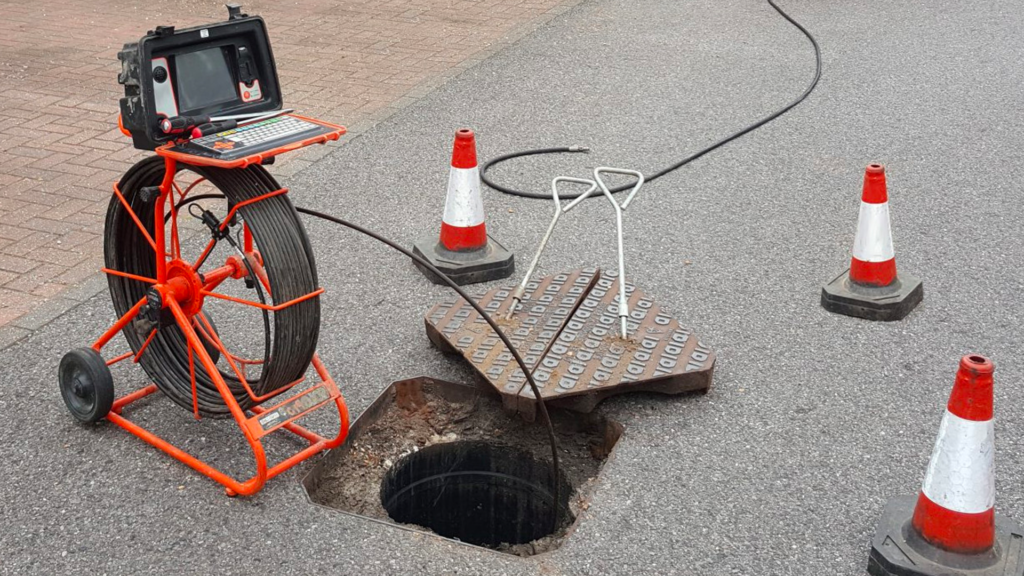The Of Reclaim Waste
The Of Reclaim Waste
Blog Article
Reclaim Waste - An Overview
Table of ContentsThe Best Guide To Reclaim WasteAll About Reclaim WasteEverything about Reclaim WasteReclaim Waste Fundamentals ExplainedThe smart Trick of Reclaim Waste That Nobody is Talking About
Check out the types, events, and kinds of fluid waste. Domestic sewage waste describes the waste and products from a residential septic system. This type of waste is produced by people in homes, schools, and various other structures. This only consists of sewage-disposal tanks that have a drain field. The appropriate administration and disposal of domestic sewage waste need liquid waste to be transferred to a sewage treatment plant where the appropriate techniques and equipment are used to purify and deal with waste.
Commercial waste usually includes possible hazards, such as combustible products or a mix of fluid and strong waste items, and requires an advanced and comprehensive disposal procedure. The disposal of business waste commonly entails the filtration of waste before transport to ensure safe and proper disposal. Hazardous waste is developed from by-products and drainage of industrial procedures and manufacturing.
This sort of waste can not use the very same sewage administration transport or processes as septic or industrial fluids. The industrial waste management process calls for the assessment and screening of liquid waste prior to it undergoes the disposal process (industrial wastewater treatment). Drainage waste is the fluid waste that originates from drainage and excess stormwater in highly booming areas or cities
Drainage waste can trigger contamination and flooding if not handled appropriately. Making certain correct waste management can protect against calamities and reduce environmental harm.
Fascination About Reclaim Waste
Contact PROS Solutions today to learn more about our waste monitoring and disposal solutions and the correct means to care for the fluid waste you generate.
(https://www.edocr.com/v/pd6avrzq/leonaube33101/reclaim-waste)This so-called 'wastewater' is not just a vital resource yet, after treatment, will be released to our land, waterways or the ocean. Utilized water from bathrooms, showers, bathrooms, cooking area sinks, washings and industrial procedures is known as wastewater.

water used to cool machinery or tidy plant and devices). Stormwater, a form of wastewater, is drainage that flows from agricultural and city locations such as roofings, parks, yards, roads, courses and rain gutters right into stormwater drains pipes, after rain. Stormwater moves unattended directly to local creeks or rivers, at some point getting to the sea.
All about Reclaim Waste
In Queensland, most wastewater is treated at sewer treatment plants. Wastewater is transported from residential or commercial websites with a system of sewage systems and pump stations, called sewerage reticulation, to a sewer therapy plant. Local governments build, maintain and operate most sewer therapy plants. Operators are certified under the Environmental Management Act 1994 to release cured wastewater at an acceptable ecological requirement right into rivers.
The Division of Natural Resources encourages neighborhood governments about find more managing, operating and preserving sewage systems and treatment plants. In unsewered locations, local federal governments may need owners to install specific or household sewer therapy systems to deal with residential wastewater from toilets, kitchens, restrooms and washings. The Department of Natural Resources authorizes making use of home systems when they are proven to be effective.
Many stormwater receives no treatment. In some new communities, treatment of some stormwater to get rid of litter, sand and gravel has begun making use of gross pollutant catches. Wastewater therapy takes place in four phases: Removes solid issue. Bigger solids, such as plastics and various other items incorrectly discharged to sewage systems, are removed when wastewater is travelled through displays.
Uses small living microorganisms understands as micro-organisms to break down and get rid of continuing to be liquified wastes and fine particles. Micro-organisms and wastes are incorporated in the sludge.
The Best Strategy To Use For Reclaim Waste
Nutrient elimination is not offered at all sewage treatment plants due to the fact that it calls for pricey specialized equipment. Clear liquid effluent produced after treatment might still consist of disease-causing micro-organisms - liquid waste removal.

This usually suggests wastewater has to be treated or impurities eliminated prior to it can be released to rivers. The majority of wastewater flows right into the sewerage system. Under the Act, neighborhood governments carry out approvals and licences for environmentally pertinent activities (Periods) including wastewater launches that might have a neighborhood influence. The department administers authorizations and permits to ERAs including wastewater launches that might have a local or statewide impact.
The smart Trick of Reclaim Waste That Nobody is Discussing
Monitoring gives accurate information regarding water top quality and can verify that licence conditions are being satisfied. The info gotten with surveillance provides the basis for making water quality choices.
Report this page